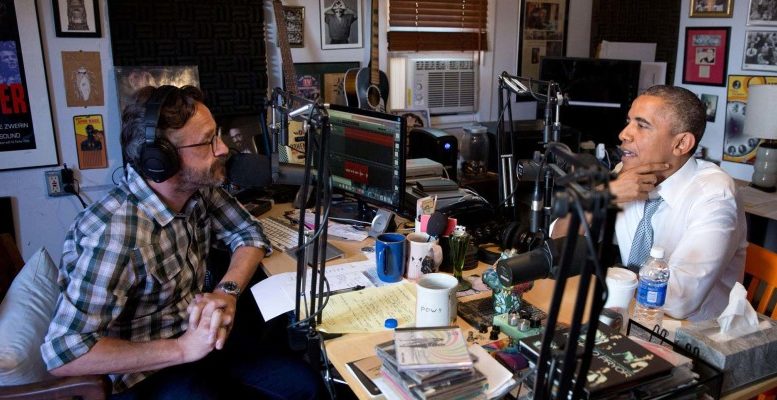Here is a simple fact: More people have downloaded the podcast Serial than have watched Girls, Mad Men, or Louie.
Podcasts are an episodic set of audio files that a listener can subscribe and listen to. The subscription to a podcast will download the newest addition in the series.They were created as the next big thing for mainstream radio, but it never really took off back in 2004 when it first started.
Despite some early intrigue and interest, podcasts faded in popularity in the early 2000s, standing with MySpace as the outdated fad. It was partly because of the many steps required to download them and play them in a vehicle. With the creation of the iPhone in 2007, the tide shifted with podcasts being as accessible as a Netflix show. The world is now in a resurgence of interest in podcasts, with 11% of Americans having listened to a podcast before by 2016.
As an essentially a free-form radio show streamed on-demand over the Internet rather than the radio waves, podcasts have come a long way in the past decade. Last year, Serial became a instantaneous success with episodes of the show having been downloaded 95.7 million times to date. People were talking about the methodical nonfiction crime story around the water cooler at their workplaces. Podcasts were beginning to be, at last, mainstream.
Anyone can make a podcast about any topic they want to. The whole concept of podcasts was to be a more intimate, non-commercialized radio show doing a deep dive into a topic.
Although podcasts are known for their casual, freelance format, that does not mean they are not a real job. A few months ago, former President Barack Obama sat down with comedian Marc Maron in his garage for an hour-long interview to talk about racism in America on his podcast, WTF.
Podcasts also bring another idea to the airwaves: diversity among shows. Radio stations usually have similar topics like news stories. Podcasts give the concept of more random stories, whether it be from the past or present. Podcasts like 99% Invisible bring light strange news stories through the lens of design and marketing. Radio stations do not branch out to form these shows that seem off the beaten path. It may not seem to be marketable but it is, with 99% being on the iTunes charts for six years now.
Podcasts are becoming more common and current as most people in the world spend time commuting. As a society, most people do not have time to sit down and read hard copy newspaper articles. Podcasts make it still possible to get the news, with New York Times’ The Daily, Vox’s Today, Explained, and NPR’s Up First. These daily podcasts give you the biggest headlines from the last 24 hours, keeping the listener on top of the news-cycle.
As podcasts get more popularized, there are still problems to be fixed. Listening to podcasts is not as simple as tuning into the traditional radio. And it still is not easy to discover new podcasts—or to share episodes that you’ve enjoyed with your friends.
That said, smartphones and Bluetooth-enabled cars have made it easier than ever for listeners to load up their favorite programs. And instead of the old way of downloading them from iTunes onto a computer and syncing with an iPod, listeners can grab shows straight from the Internet onto their smartphones.
For students in the 21st century, we truly do not have time to read a newspaper to catch up on current events. With workload of school and sports practices, we do not have the space in our schedules. But, podcasts make it easier for us to be caught up and aware of our surroundings outside our social circle. We are able to listen to them while driving or while doing other things, making news outlets more accessible to people on the go. They also make us explore new topics that we do not have the chance to learn from school.

